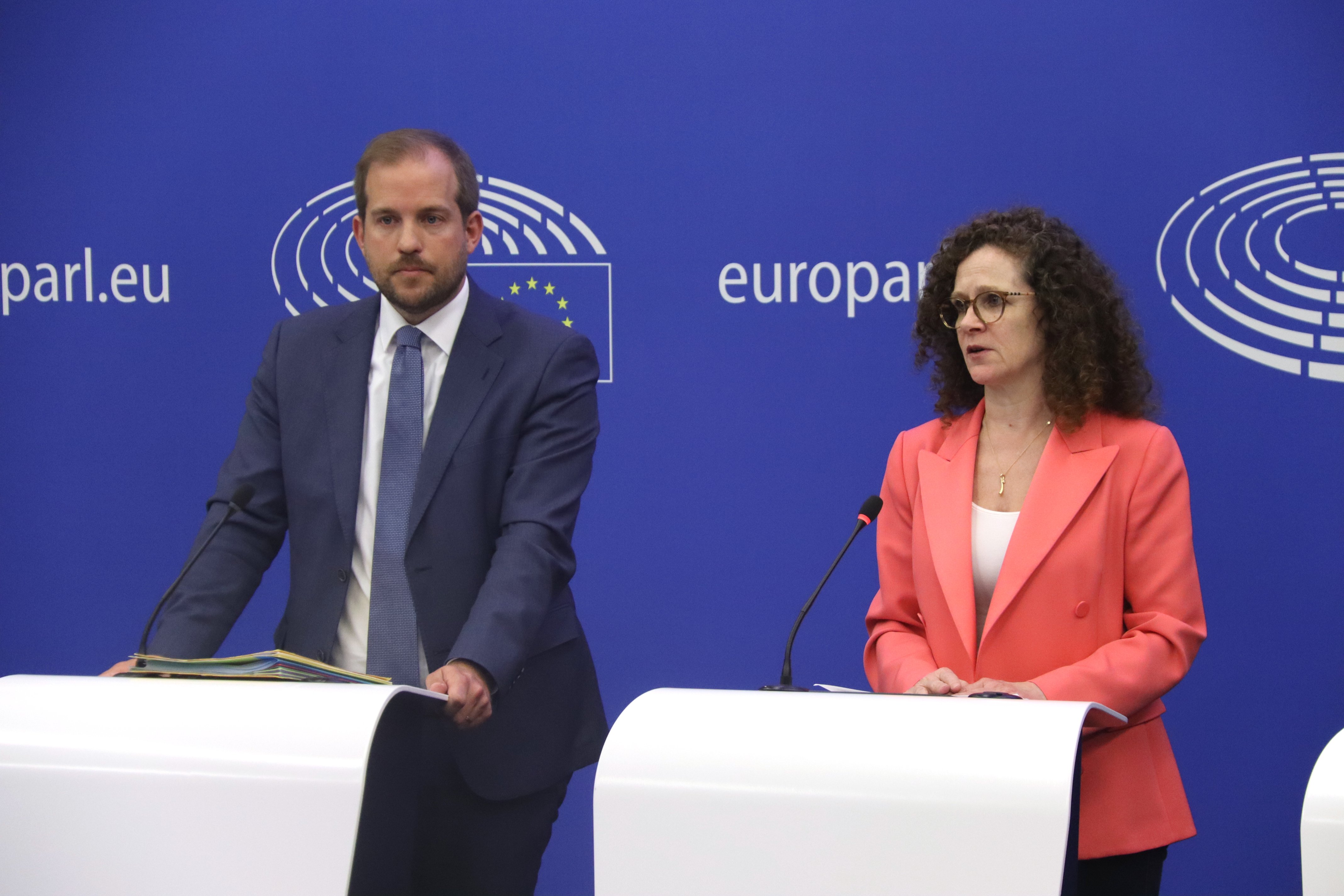A strong wake-up call to the institutions of the European Union by the rapporteur of the European Parliament report on the use of Pegasus spyware, Sophie In'T Veld. The day after the report was approved in committee, In'T Veld stated that she believes that the Union's governing institutions have "a moral duty to European citizens" to act against the cyberespionage abuses which the report documented, including Spain's large-scale spying on pro-independence activists in the Catalangate case. Her "moral" appeal followed comments in which she had denounced not only the lack of cooperation in the inquiry from all five EU countries where major cyberespionage cases have surfaced - Spain, Poland, Hungary, Greece and Cyprus - but also a general reluctance to act against the cyberespionage threat, even in the European Commission and Council themselves.
"We know that we cannot force the Commission and the Council to act [...] but if they let this go on in the EU, they will be complicit in the destruction of democracy," the report's rapporteur stressed this Tuesday in a press conference from Strasbourg. According to the liberal Dutch politician, the cases uncovered in the two years since the first Pegasus revelations have made it clear that the people targeted were deliberately chosen "for political reasons" - critical voices, lawyers, activists in their countries. Hence, as well as damage to individuals, the spyware use is a threat to democracy and the rule of law, she said. In'T Veld recognized that the report was incomplete: "We know there is a lot more information out there". But in defence of the Pegasus committee's work, she noted that the European Parliament seemed to be "the only parliament" which had been able to carry out such a full inquiry into Pegasus use - because some others, like that of Spain, were blocked.
In particular, In'T Veld criticized that the vast majority of states have used national security as an argument to justify espionage and avoid investigations. She also expressed "concern" about the consequences this may have, especially in terms of elections in the different countries holding elections this year. In the press conference, the MEP frequently returned to the lack of collaboration from governments in the preparation of the report and criticized the lack of independence of some of them. "Many countries say that victims have to go to the national authorities to report what has happened, but what is the point when it turns out that they are the ones who are doing the spying?" she said.
She also stressed that the use of the spyware diluted the democratic credentials of the European Union: "The software serves the same purpose both inside and outside the EU. It is a tool for power and a tool against democracy". In addition she expressed concern over reports that the espionage program Predator, whose use in Greece was documented in the report, has been exported to Sudan, "to parties that are now at war".
The Pegasus committee will continue to work
For his part, the president of the Pegasus committee, Jeroen Lenaers, indicated that, in an ideal situation, the European Parliament's committee should not exist. Despite its busy work timetable over its one-year mandate, he insisted that the group's work is "far from finished" and he was convinced that the recommendations to be approved by the European chamber "will make the difference" in ensuring that espionage programs disappear from the European institutions.
The reactions to the report this Monday in Catalonia were diverse. MEP and Catalan president-in-exile Carles Puigdemont argued that, despite his agreement with some of the report's content, he felt that overall it "followed the Spanish government line" and thus fell short, failing to admit the systemic problems in the Spanish case which it diagnosed for Poland and Hungary. On the part of the Catalan government and ERC, however, the report was generally well received and celebrated, for its "in-depth analysis of Catalangate, demand that the Spanish state must act to find out who was responsible, and its denunciation of the defencelessness of the victims." The release of the document was not widely reported in the Spanish press, but was criticised by Ciudananos MEP, Jordi Cañas, who asserted that the report was full of "lies" and "carried out in bad faith".

